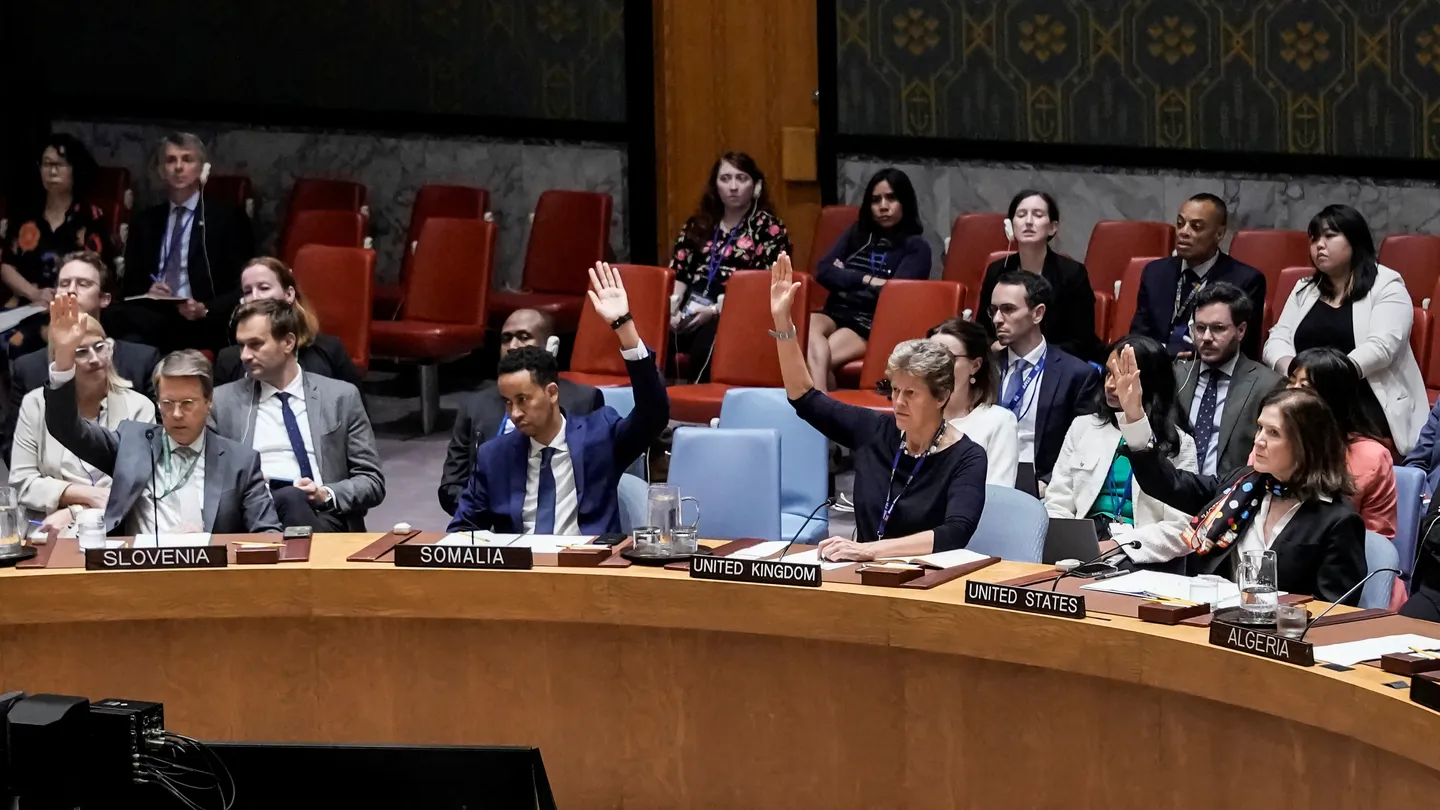The U.N. Security Council on Friday rejected a last-ditch bid by Russia and China to delay the reinstatement of sanctions on Iran, handing momentum back to the European-led “snapback” process first triggered by Britain, France and Germany. The draft resolution proposed by Moscow and Beijing, which sought a six-month extension of the sanctions window, failed to attract the nine affirmative votes needed under U.N. rules, drawing nine “no” votes and two abstentions.
Russia’s deputy U.N. envoy Dmitry Polyanskiy urged Council members to choose diplomacy over confrontation, insisting Tehran had made concessions and accusing Western powers of stalling for leverage. China similarly framed the proposal as a necessary pause for dialogue. But Council members from Europe, the U.S., and allies held that the window for negotiation had passed, and that the process under U.N. Security Council Resolution 2231 must be honored.
With the delay proposal blocked, all U.N. sanctions lifted in 2015 will automatically snap back into effect Saturday evening (New York time). The measures include the freezing of Iranian assets abroad, the reimposition of an arms embargo, and renewed restrictions on Iran’s ballistic missile programme. Iran’s representatives condemned the move, with Foreign Minister Abbas Araghchi calling the snapback “legally void, politically reckless and procedurally flawed,” and warning of further escalation.





